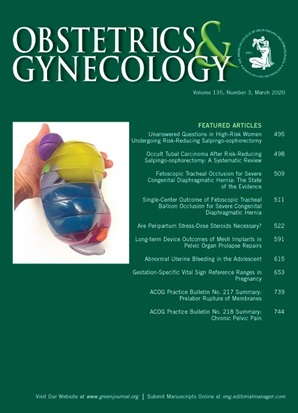
Expression of concern, meet expression of frustration.
Eight months ago, in the wake of skepticism about the data in a 2017 paper it had published, the Obstetrics & Gynecology issued an EoC about the article. At the time, the journal, an official title of the American College of Obstetricians and Gynecologists, said it had contacted the authors’ institution — Menoufia University in Shibin Al Kawm, Egypt — about the article.
Those efforts evidently met with silence. Now the journal has retracted the paper, “Sildenafil citrate therapy for oligohydramnios: a randomized controlled trial,” with a swipe at the school’s apparent lack of interest in the misdeeds of its faculty members:
The Editors of Obstetrics & Gynecology are retracting “Sildenafil Citrate Therapy for Oligohydramnios: A Randomized Controlled Trial,” by Maher et al,1 originally published in the journal’s April 2017 issue (http://dx.doi.org/10.1097/ AOG.0000000000001928). This retraction notice updates the Expression of Concern published in the journal’s August 2019 issue.2
The journal engaged an expert to conduct an independent statistical review of the data. This analysis was conducted concurrent with attempts by the journal to correspond with the authors’ institution (Menoufia University). The independent statistical reviewer concluded that it is unlikely that the data are genuine and further noted that patterns and correlations in the data set are very clearly compatible with the invention of data.
Although the Editors understand that Menoufia University intends to investigate, in light of the passage of time since publication of the Expression of Concern (approximately 8 months), during which we have received no information to help assuage the concern, and the conclusions of the independent statistical reviewer, the journal is retracting “Sildenafil Citrate Therapy for Oligohydramnios: A Randomized Controlled Trial.” This retraction is being published online ahead of print on March 9, 2020.
Nancy Chescheir, the editor of the journal, provided us a bit more detail about what the statistician found:
Analysis of the raw data files by a specialist in statistical analysis to assess for fraudulent data showed that there was almost total separation of the two groups, with a P value by t-test of 1.2 1.2*10-52 The statistician concluded that this is unprecedented in real data.
Five tips for keeping fraud out of journals
That statistician was Stephen Evans, who told us he has reviewed roughly two dozen papers journals dating back to the 1980s.
Over the 1980’s and 1990’s I was asked by various people to investigate possible fraud, at first mainly in pharmaceutical industry trials, and then by journal editors. I had been involved with the BMJ from about 1990. Many of the investigations related to data submitted to companies and not published. Many of the journal issues related to papers that were then rejected and I am unsure whether they were then published elsewhere.
Most of the cases I investigated, I found clear evidence of misconduct, such that either the authors admitted it, or the journals simply rejected them.
We asked Evans for his advice for journals on how to keep fraudulent data out of their pages. His response:
- Alert reviewers to the possibility of research misconduct, and to be sensitive to when data are showing larger effects than expected.
- Teach all reviewers to examine tables of data, especially looking at the variability- reduced variability is often a marker for a problem
- Request original data whenever there is suspicion. Some of the time the data will be genuine though.
- Perhaps request data randomly for provisionally accepted papers- failure to provide the data at that stage may be a marker for problems.
- Have some statisticians who advise the editors, and who are alerted to misconduct and trained in ways of detecting it — it is not a usual part of the training of statisticians.
Like Retraction Watch? You can make a tax-deductible contribution to support our work, follow us on Twitter, like us on Facebook, add us to your RSS reader, or subscribe to our daily digest. If you find a retraction that’s not in our database, you can let us know here. For comments or feedback, email us at [email protected].
We need more Stephen Evans and honest journal editors who will listen to such sage advice and analysis.